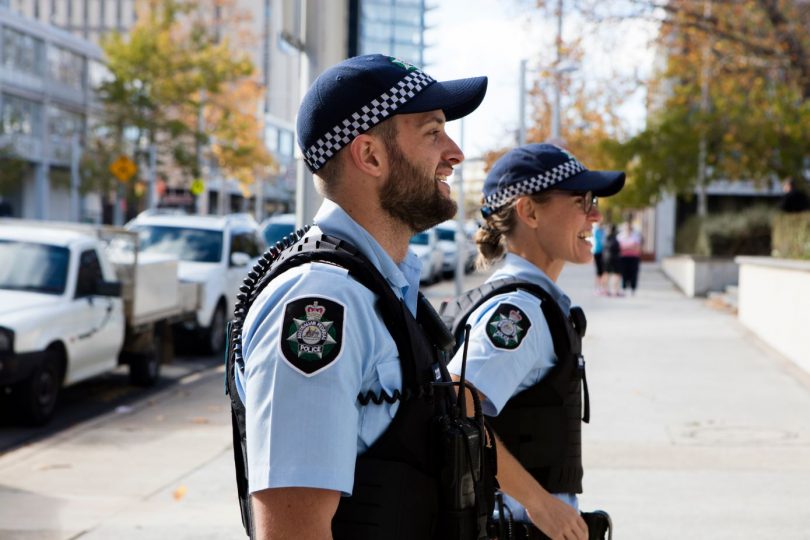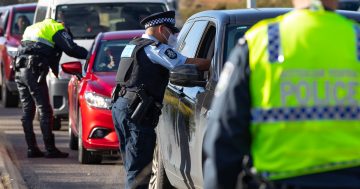
Police and Emergency Services Minister Mick Gentleman said the new legislation would reflect community expectation that these assaults are unacceptable. Photo: George Tsotsos.
The ACT Government is proposing tougher penalties for people who assault first responders, including a new offence for driving at police officers and their vehicles.
Police and Emergency Services Minister Mick Gentleman said the new bill will mirror similar reforms in other Australian jurisdictions. It will be considered for introduction in the ACT Legislative Assembly later this year.
Under current legislation in the ACT, if a police officer is assaulted while on duty, the offender can be charged with common assault, carrying a maximum penalty of two years’ prison. Depending on the severity of the incident, a charge of assault occasioning actual bodily harm, carrying five years, may also be laid.
In NSW, the maximum penalty for assaulting, harassing or intimidating a police officer while on duty is a maximum of five years’ imprisonment, even if the officer did not receive any actual bodily harm. If the incident does cause actual harm, the maximum penalty increases to seven to 14 years’ imprisonment, depending on the circumstances.
Mr Gentleman said the new legislation would reflect the clear community expectation that these assaults are unacceptable.
“We want to protect our first responders as they put themselves in harm’s way by keeping our community safe,” Mr Gentleman said. “Our police, firefighters and paramedics routinely attend emergency incidents and render assistance in volatile and dangerous situations where they are exposed to an increased risk of violence.
“This new offence reflects the growing concerns of the frequency and severity of assaults against police officers, firefighters and paramedics.”
The Australian Federal Police Association president Angela Smith has welcomed the proposed legislation, saying it will give better protection and judicial avenues that police officers and other emergency services deserve.

Around 66 per cent of responders to an AFPA survey said they have been assaulted while on duty. Photo: Supplied.
According to ACT Policing, there were 320 recorded assaults on police since 1 January 2012 and 31 May 2019.
“One of our biggest concerns and lobbying points was the fact that common assault doesn’t accurately reflect the seriousness of assaulting a police officer, paramedic or firefighter,” Ms Smith said. “People who are convicted of this offence won’t be able to bluff or hide behind a common assault charge on their criminal record, it will clearly state assault police or emergency services worker.”
The AFPA recently surveyed 212 police officers across the City, Belconnen, Gungahlin, Tuggeranong and Woden stations, with 66 per cent of responders saying they have been assaulted while on duty.
Sixty per cent (127 police officers) said their lives have been put in danger when they were driven at, their car was rammed or they were physically hit by an offender’s vehicle. Three out of four responders said they would like to see the introduction of stand-alone offences for driving at police officers or ramming police vehicles.
Ninety-eight per cent of participants said they supported the introduction of stronger legislation.
“With this announcement, Mr Gentleman and the ACT Government have delivered on a matter that was at the heart of ACT Policing members,” Ms Smith said. “This legislation really matters to the ACT Policing officers and their families.”




















